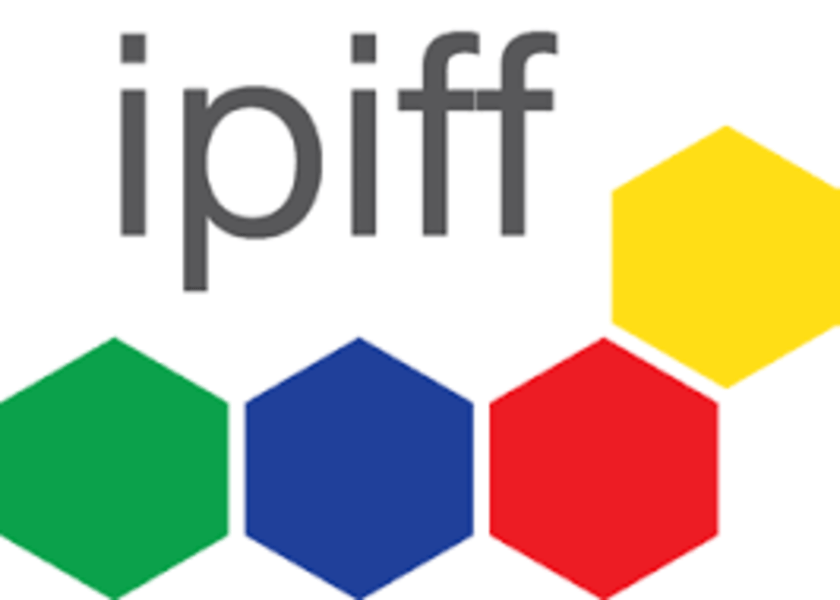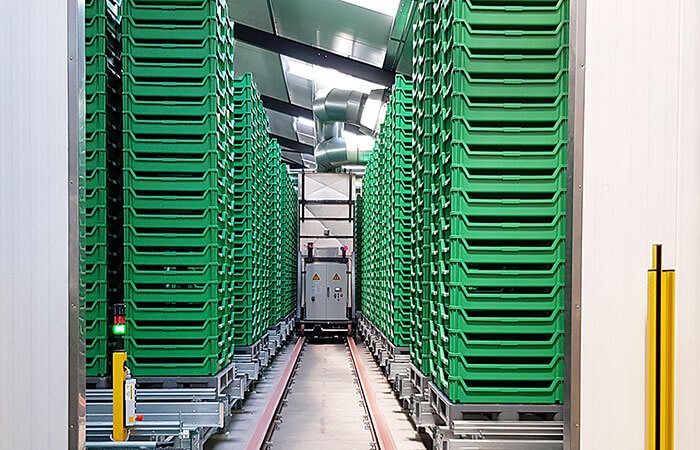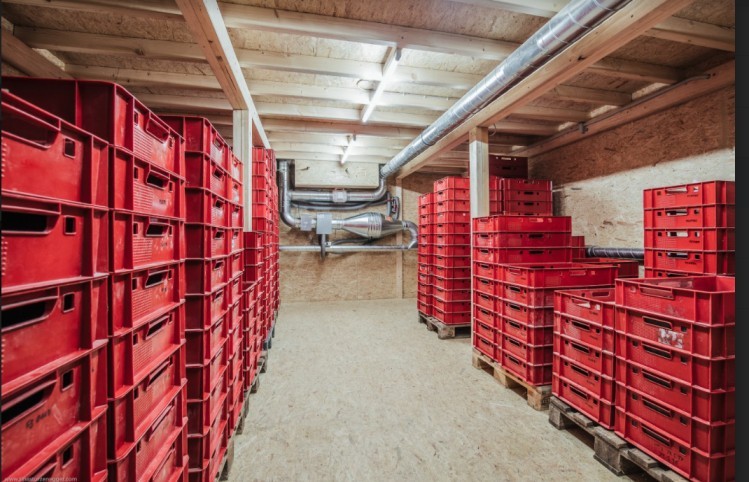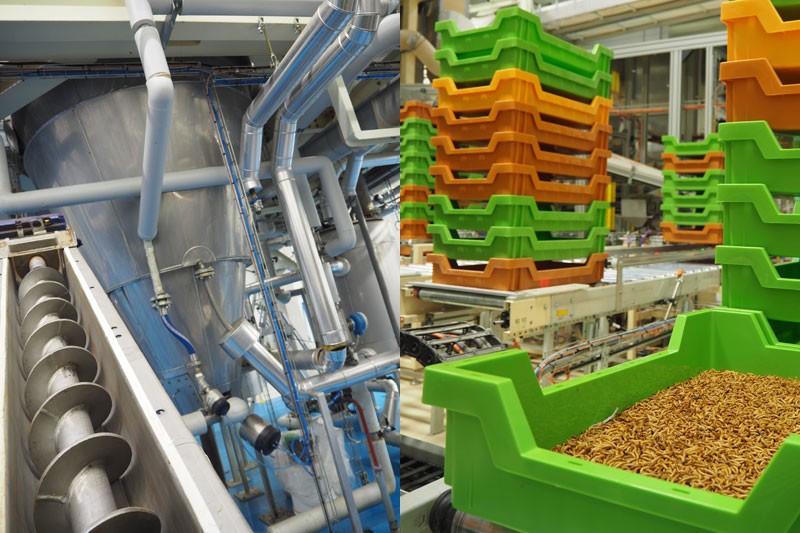EU Legislation – General Overview
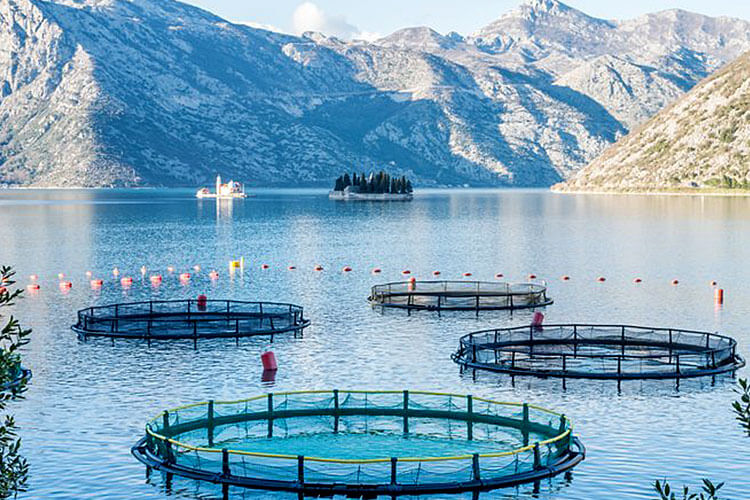
EU law regulates the conditions for food and feed business operators, such as insect producers, to produce and commercialise their products in the European Union. Notably, EU policymakers have adopted – in the early 2000s – a package of legislative texts which define general principles and standards in the area of food and feed safety. These legislative texts are most commonly known as the ‘General Food Law’ (Regulation No 178/2002) and the ‘Hygiene Package’ (e.g. Regulation No 852/2004 on the hygiene of foodstuffs and Regulation No 183/2005 laying down requirements for feed hygiene).
According to the above texts, producers of insects – like any other food or feed business operator – are responsible for ensuring the safety of the marketed products: to this end, these texts impose general obligations on those actors – such as the registration or approval of their activities before national competent authorities – and establish hygiene standards to be applied at the different stages of production covered.
Download the General Food Law Regulation – i.e. Regulation (EC) No 178/2002 – and the Regulations contained in the ‘Hygiene Package’ – i.e. Regulation No 852/2004 and Regulation No 183/2005 .
EU decision makers have also established restrictions on the feed which may be given to ‘farmed animals’ – i.e. animals that are kept for the production of food, feed or other derived products (e.g. wool or hides). These restrictions also apply to insects intended for human consumption or for animal feed use.
Consequently, such insects may only be fed with materials of vegetal origin. Some exceptions are however admitted for materials of animal origin such as milk, eggs and their products, honey, rendered fat or blood products from non-ruminant animals. The feeding of farmed animals with other slaughterhouse or rendering derived products, manure, or catering waste is however prohibited. The same ban applies to the use of unsold products from supermarkets or food industries (e.g. unsold products in reason of manufacturing or packaging defects) if these contain meat or fish.
Furthermore, obligations lie with insect producers to ensure that their animals are kept in good health so as to prevent the spreading of diseases among their production flock. To this end, EU policy makers have established the responsibilities of animal breeders in the area of health and biosecurity in the so-called ‘EU Animal Health Law’.
Download the ‘EU Animal Health Law’ – Regulation (EU) No 2016/429 on transmissible animal diseases
Third countries producers intending to export insects or their derived products – as food or feed – into the European Union must comply with similar– or equivalent – standards as those established in the European legislation (see above).
Imports for insects as feed are already regulated within the existing EU legal framework – i.e. specific rules are established regarding feed safety, substrates used to feed insects, hygiene, traceability, and manufacturing requirements. Furthermore, imports in the EU of insect PAP, and of treated, but not processed insects (e.g. frozen insects) as feed are allowed only if originating from third countries as indicated in Part 1 of Annex XIII or Part 1, Section A of Annex XV of Regulation (EU) 2021/404 and if accompanied by a health certificate, in line with the model health certificate laid down in Chapter Ia of Annex XV to Regulation (EC) 142/2011. In addition to the third countries listed there, importing products originating from Albania, Algeria or El Salvador are authorised, too (if accompanied with a respective health certificate).
Yet, EU legislation acknowledges the specificities of insect production activities
European insect producers must conform with EU environmental legislation. Notably, Regulation (EU) No 1143/2014 restricts the insect species that are eligible for farming purposes – i.e. by establishing a list of ‘invasive alien species’. The objective of this legislative text is to prevent the introduction in the environment of species that may threaten surrounding biodiversity or ecosystems, in the event of accidental release of farmed insects. Today, the only listed insect species in this legislation – and therefore prohibited –is the Asian predatory wasp – i.e. vespa velutina. Yet this list should be updated on a regular basis.
Download Implementing Regulation (EU) 2016/1141 of 13 July 2016 adopting a list of invasive alien species.
EU policymakers have left out invertebrate animals – and thus insects – from the scope of the EU animal welfare legislation that normally apply to European animal breeders. This means that today insect producers are exempted from any EU legal obligations in the area of animal welfare.
Ensuring High Standards of Animal Welfare in Insect Production
IPIFF and its members are taking animal welfare very seriously. We are committed to promoting good welfare practices. Please refer to our reflection paper on this subject.
Download Animal Welfare in Insect Production
Producers of insects intended for animal feed use must be registered and/or approved for that purpose
Producers of insects intended for animal feed use (i.e. farmed livestock, aquaculture or pet food) must be registered as ‘feed business operators’ before their national competent authorities. This prescription is posed by Regulation (EC) 183/2005, which defines safety and hygiene standards for animal feed products.
Insects and their derived products – excluding live insects –that are intended to be used in animal feed are considered as ‘animal by-products’ – i.e. animals and products from animals that are not intended for human consumption – under EU Law. This qualification entails a series of obligations for producers defined in Regulation No 1069/2009 and its implementing Regulation No 142/2011 – more commonly referred to as the ‘EU animal by-products legislation’.
Download Regulation (EC) No 1069/2009 laying down health rules as regards animal by-products and derived products not intended for human consumption.
Download Regulation (EU) No 142/2011 implementing Regulation (EC) No 1069/2009.
Insects must be processed in establishments that are specifically approved for that purpose. Such a procedure is required in order to assess that the potential biological risks associated with such products are appropriately managed by the producer.
For producers of insect meal – more commonly referred to as ‘processed insect proteins’ or ‘insect proteins’ –, such approval is conditional on the fulfilment of a specific processing method, as described in the EU ‘animal by-products legislation’ – i.e. in Regulation No 142/2011 (annexe IV, chapter III)
- Insect meal producers may apply one of the methods 1 to 5. In this case, the parameters – i.e. reduction of particle size, heat treatment, time and pressure – associated with each of these methods are specifically defined in the abovementioned Regulation.
- Alternatively, insect meal producers may apply the so-called ‘method 7’: in this case, the parameters associated with the method are defined by Member States competent authorities, but remain based on general criteria that are being defined in the above EU Regulation (e.g. the operator must demonstrate that the final product is free from – or does not exceed certain maximum levels – the following bacterial agents: Salmonella, Enterobacteriaceae and Clostridium perfigens).
Yet, the fulfilment of one of the above-mentioned methods is not prescribed, in case the operator produces insect fat, whole insects or if the insect meal is obtained through hydrolysis technique.
Since September 2021, the possibilities to feed insect proteins to certain animal species are unlocked, thanks to the lifting of the EU ‘feed ban’ rules
Overview of regulatory possibilities for using insect products as feed at EU level (IPIFF Guide on Good Hygiene Practices for EU producers of insects as food and feed – November 2022)
In April 2021, the EU Member States voted positively on the authorisation of insect-processed animal proteins (PAPs) in poultry and pig feed. This proposal represents a relevant milestone for the European insect sector, as it marks one of the key steps in the authorisation process. In line with the EU procedures, the entry into force of this proposal took place on the 7th of September 2021.
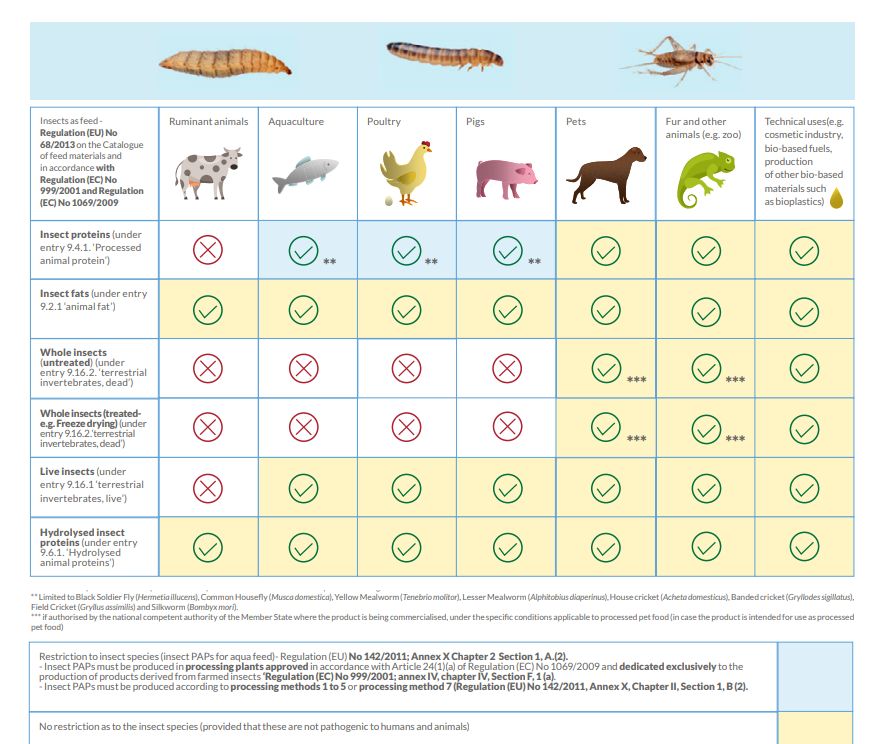
The 2017 authorisation of insect proteins for use in aquafeed has paved the way to new feed markets for insect producers
In its scientific opinion dated from 8 October 2015, the European Food Safety Authority (EFSA) concluded that the ‘possible occurrence of microbiological hazards in insect protein sources is expected to be comparable to their occurrence in other non-processed sources of protein of animal origin’.
The above opinion provided the basis for a revision of the feed ban rules in view of authorizing the use of insect proteins in feed for farmed animals:
- The Regulation No 2001/999 (Annex IV) amended by the Regulation 2017/893 (Annex X) indeed authorises the use of insect proteins originating from seven insect species – namely black soldier fly (Hermetia illucens), common housefly (Musca domestica), yellow mealworm (Tenebrio molitor), lesser mealworm (Alphitobius diaperinus), house cricket (Acheta domesticus), banded cricket (Gryllodes sigillatus) and field cricket (Gryllus assimilis) – in feed for aquaculture, poultry and swine animals.
- Note: As of November 2021, as part of the EU legislation on animal by-products (i.e. Regulation (EU) 2021/1925), the EU legislator authorised the use of silkworm (Bombyx mori) processed animal proteins (PAPs) in aquaculture, poultry and pig feed, expanding the list from seven to eight authorised species.
The above section will be updated once further information is available.
For further information about the IPIFF position concerning the relaxation of the EU feed ban rules and animal by-products legislation – i.e. widen up the authorised feed markets and feed materials authorised as feed for insects – you may refer to the ‘IPIFF position on the use of insect proteins in animal feed’ (section ‘publications’).
